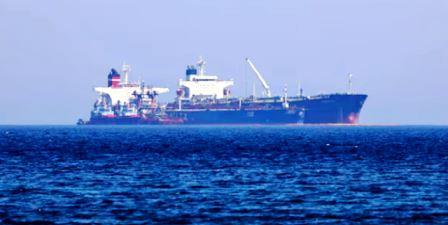U.S. Considers Inspecting Iranian Oil Tankers
U.S. Considers Inspecting Iranian Oil Tankers: The United States is considering a plan to stop and inspect Iranian oil tankers at sea as part of an ongoing effort to curb Iran’s oil exports and limit its financial resources. The move is in line with former President Donald Trump’s “maximum pressure” strategy aimed at undermining Iran’s ability to fund its nuclear program and military operations. However, such inspections carry significant geopolitical and economic costs.
The United States and Iran have been at odds for decades over Tehran’s nuclear ambitions, regional influence and support for terrorist groups. The situation has been exacerbated by a series of sanctions and retaliations, with oil exports becoming a key battleground in the conflict.
The Trump administration has a clear goal: to reduce Iran’s sources of revenue by restricting its oil exports. His policy has included imposing sanctions on Iranian industries and measures to prevent Iranian crude from reaching global markets. These policies have continued into his second term, keeping tensions high.
Trump’s latest sanctions target Iranian shipping companies and a “ghost fleet” of aging tankers carrying crude oil without Western insurance. The measures have created challenges for Iran but have not completely halted its exports, particularly to China.
To strengthen enforcement, the administration is exploring ship inspections under the Proliferation Security Initiative (PSI), a 2003 agreement designed to stop the spread of weapons of mass destruction. If implemented, it would allow allies to inspect Iranian tankers, which could delay deliveries and disrupt trade.
The PSI is an international initiative backed by more than 100 countries aimed at curbing illicit trafficking. Although it is primarily focused on preventing arms smuggling, it could be justified as an inspection of Iranian oil tankers. However, it is uncertain whether other countries will cooperate.
U.S. Considers Inspecting Iranian Oil Tankers
Delays and disruptions to Iran’s oil trade could hurt its economy, as oil sales are its main source of revenue. With sanctions already restricting financial flows, further sanctions could push Iran into a deeper economic crisis.
Iran is a major player in the oil market, and any disruption to its exports could send global oil prices soaring. If tanker inspections slow cargoes, refiners and buyers could face delays, creating uncertainty.
Imposing inspections on Iranian oil shipments could spark a backlash from Iran’s allies, such as China and Russia. Countries that rely on Iranian oil could resist US efforts, straining diplomatic relations.
Iran has a history of retaliating against US sanctions. When the US tried to seize Iranian oil shipments in 2023, Tehran responded by seizing foreign-flagged ships, which increased tensions in the Persian Gulf.
Oil prices are sensitive to geopolitical risks. If the US actions lead to a significant drop in Iranian exports, prices could rise, affecting global supply chains. However, the decline in oil prices in recent months gives the US some leeway to tighten sanctions without major disruptions to the market.
China, India and European countries may oppose US enforcement measures because they rely on stable energy markets. Washington will need strong diplomatic efforts to gain international support for its strategy.
China is the largest buyer of Iranian crude, and Russia has increased its energy cooperation with Tehran. Both countries could circumvent the US actions by strengthening alternative trade mechanisms, such as barter agreements and cashless transactions.
Conducting inspections in international waters poses legal and diplomatic challenges. The United States must navigate complex maritime laws and avoid violating sovereign rights that could lead to international legal disputes.
While inspections may be able to delay Iranian oil shipments, they may not be enough to reduce exports to zero. Iran has a history of circumventing sanctions by seeking alternative buyers and using smuggling networks to evade sanctions.
The Trump administration’s plan to inspect Iranian oil tankers is part of a broader effort to isolate Tehran economically. While it could affect Iranian oil exports, it carries significant risks, including retaliation from Iran, economic uncertainty, and diplomatic repercussions. The success of this strategy will depend on international cooperation and Iran’s ability to counter U.S. actions.

